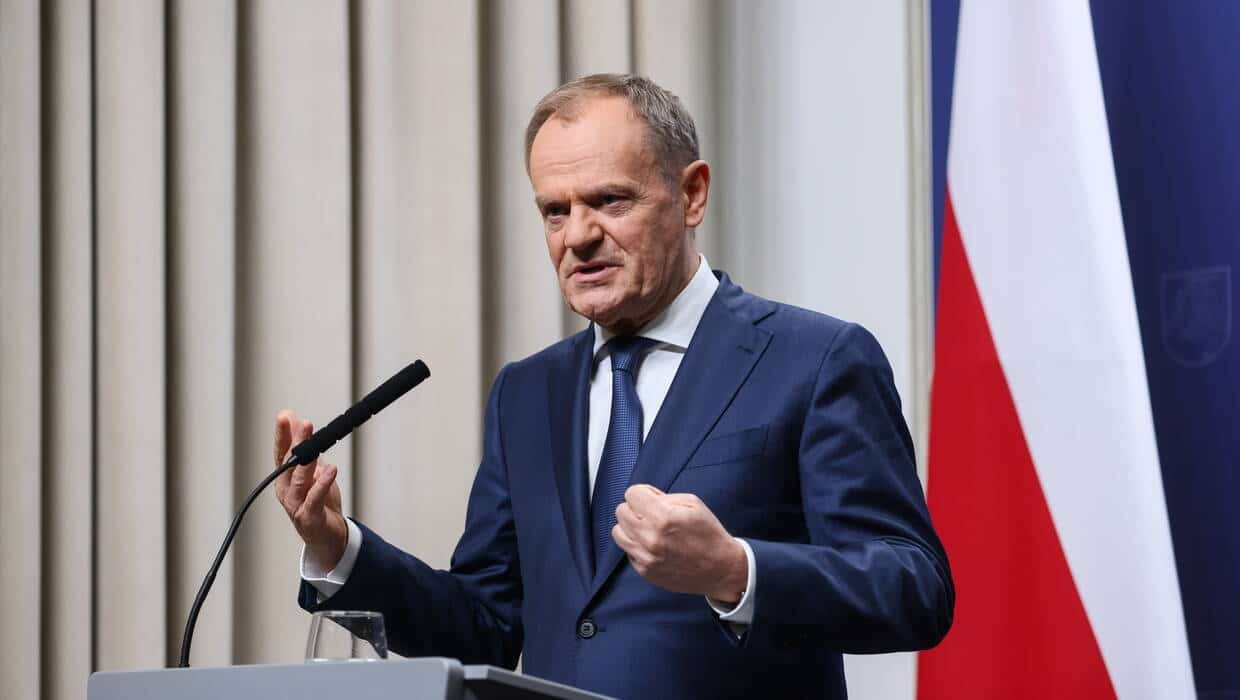Weighing Tusk’s first 100-days
The largest ruling coalition party Civic Coalition (KO) laid out 100 things it would do in its first 100 days of government – how did it do?
The formation of Donald Tusk’s government – which includes representatives of the Civic Coalition (KO), Poland 2050, the Polish People’s Party (PSL) and the Left – took almost two months. A key issue has been that ‘100 days’ claim was part of KO’s electoral campaign and not necessarily fully endorsed by its two smaller coalition partners.
“Some of the proposals were not very intelligent and almost impossible to realize. If we look at Donald Tusk’s expose we see that. It wasn’t really a program for the government, more like a vision,” Wojciech Siatek of Polityka Insight says. The next 100 days are in fact more important, he adds.
Opinions and analyses of course differ. What constitutes a promise, what an ambition, and how to evaluate success? “Each of us has some flaws. My greatest is impatience. It’s no secret to anyone who works with me that I always want everything to happen as quickly as possible, without wasting a single moment. For example, the100 specifics,” said Donald Tusk in a recording published on the X website.
“And actually. look how many things happened. How many cases have we solved? Although of course I wanted faster and more, as always. It used to be that governments were given 100 days of peace to get started. We didn’t get that. The war and all its consequences, including the mess our predecessors caused to our farmers, the vetoing president, the chaotic and aggressive opposition furiously defending its money and impunity,” he added.
“Television is yours again, the prosecutor’s office and courts are free from party dictates, Poland is becoming a leading European player again. We are no longer alone, we recovered 600 billion zlotys in one month. I know, I wanted to do it in one day, but they couldn’t do it in two years. 800 plus paid. Teachers’ pay raises and budgets paid. Inflation below 3%,” he said.
Minuses
Of the promises regarding energy and environment, one out of 13 have been fulfilled, according to Gazeta.pl’s analysis. That abortion up to the 12th week of pregnancy would become legal, safe and available, was also one of the 100 specifics. Its fate hangs in the balance at the behest of Sejm speaker, Szymon Hołownia, who postponed the debate on abortion until after the local elections in April and proposed a referendum to settle the matter. On foreign and security policy, Tusk’s Civic Coalition (KO) devoted seven points and only three can be described as partially implemented, Gazeta.pl notes. There is, for example, no announcement EU funding “for the defense of the Polish border with Belarus,” as promised.
Pluses
Tusk wanted to put Poland back into the European mainstream, says Siatek. “And with that in mind it has been a great success,” he adds. Foreign policy was one of the areas most frequently criticized by the opposition during the PiS government. “The new government and the management of the ministry face a dilemma whether – at least in the short term – to continue some of the activities of its predecessors or whether to immediately build foreign policy from scratch, which would mean personnel and structural changes and the creation of new relationships with various institutions (such as the Ministry of Defense, Ministry of Internal Affairs, secret services),” says Piotr Łukasiewicz, security and international affairs analyst at Polityka Insight.
Radosław Sikorski, as Minister of Foreign Affairs, did not arouse 100% enthusiasm when he arrived in office. Some blamed him for his aggressive-sounding tweets, others reminded him of the transfers he received from the United Arab Emirates. This changed quickly. In February, many in Poland (and Ukraine) were delighted with the way he pointed out, fact by fact, the lies of the Russian ambassador at the UN Security Council.
Unlocking the National Recovery Plan (KPO): Another priority was to receive money from the reconstruction fund, access to which has been conditioned by the European Commission on strengthening the independence of judges. A significant difficulty in implementing statutory changes will be the veto of President Andrzej Duda.
The problem of access to funds may be temporarily alleviated by an advance payment of nearly EUR 5 billion, which Poland received from RePower – an instrument established as part of the reconstruction fund in response to Russian aggression, which is not covered by other KPO obligations. The European Commission has already accepted the amendments to the KPO submitted by Mateusz Morawiecki’s government.
Among the positives in the field of digitalization, the establishment of the PL/AI advisory team Artificial Intelligence for Poland, composed of specialists from the technology sector, is worth mentioning. In the media sphere, although the blunt propaganda and deception have disappeared, it is difficult to talk about complete independence from the authorities. An apology to LGBT people was a symbolic but important gesture.
Clearing up
At the end of January, Prosecutor General Adam Bodnar established an investigative team at the National Prosecutor’s Office to examine the correctness of management and spending of moneys from the Justice Fundand on March 26, the Internal Security Agency (ABW) swooped on the properties of four ex-government members, including those of the ex-justice minister as part of a nationwide investigation into allegations of corruption. The properties of ex-Justice Minister Zbigniew Ziobro – architect of the Law and Justice (PiS)-led government’s judicial reforms that drove the EU to withhold bloc funds for Poland – were included in the swoop. “Let law always mean law, and justice – justice,” Prime Minister Donald Tusk wrote on X. His government has spent its first 100 days in office auditing public and quasi-public institutions, in particular in the media and energy sectors, while also overhauling the previous government’s judicial reforms. Tusk’s ruling coalition also brought a motion in parliament to summon the chief of the central bank, Adam Glapinski, before the State Tribunal over malfeasance allegations.
There have also been proposals to lower health premiums for entrepreneurs, loosen the Sunday trading ban, a Social Security vacation for entrepreneurs, a benefit for women returning to the labor market after giving birth, pay rises for social workers and a bill on civil protection. “The aim of these measures is to give the impression of high government activity and to cover criticism of the slow implementation of election promises. However, the liberal proposals are a cause of friction in the coalition, as they are opposed by the New Left,” writes Bridge. “The prime minister’s actions are beginning to resemble the role of a firefighter who shows up wherever more fires break out,” Bridge writes.
“The challenge is to maintain internal unity and cohesion to maintain its advantage over PiS and achieve victory in the local and European elections. To introduce changes, the new government must also learn to cooperate with the president, otherwise it will face his veto on key bills,” says Baj.
Bridge notes a poll showing that most Poles (61%) consider the unlocking of funds from the National Reconstruction Plan and the conduct of foreign policy (51%) as successes for the government. Respondents considered the pace of implementation of election promises (50%) and the government’s response to farmers’ protests (47%) as failures.







